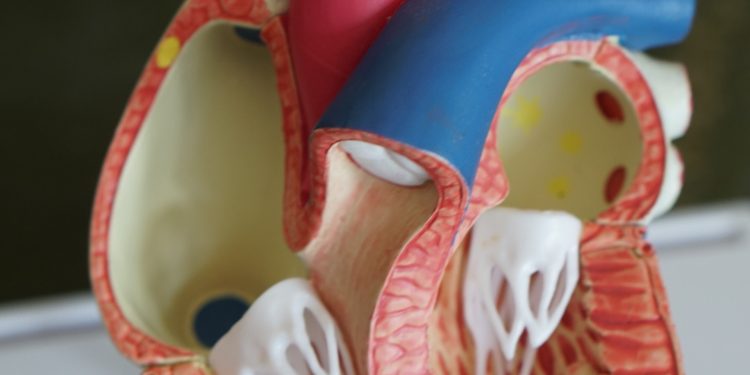A medical detox is often the first step of treatment whenever someone enters a rehab in LA. It’s a crucial step since it will dictate the course of the next treatments and the overall recovery of the person. But as much as this part is important, many have one question in mind: how long does medical detox take?
In this post, we will answer this question together with factors that affect the actual length of the medical detox process. So whether you’re seeking treatment for yourself or a loved one, keep reading to learn more about this procedure.
What is a medical detox?
Before we talk about the timeframe for medical detox, let’s first discuss what this treatment is about.
In general, medical detox is the process of physically cleansing your body of any substance you’re addicted to. It’s the first step of rehabilitation because, without detoxification, your body won’t be able to achieve full recovery.
Take note that medical detox can be an excruciating process, especially for people with severe to chronic substance addiction. It often requires round-the-clock supervision to manage potentially life-threatening withdrawal symptoms.
Aside from that, medical detox also involves medication management. With this, addiction specialists will provide you with medications that can help reduce your cravings and other symptoms.
Overall, the goal of medical detox is to prepare your mind and body for further treatments. Although it’s a challenging step, finishing it would do wonders for your body. It will also set a solid foundation for further treatment modalities.
Typical duration of medical detox
On average, a medical detox in Los Angeles would last for about 30 days. Other rehab centers offer shorter treatments of 7 days, although the former is often the recommended duration.
But depending on your specific condition, this timeframe can stretch to 60 or even 90 days. It all depends on how your body responds to the detoxification and your level of commitment. Overall, the exact duration of your detox is determined based on your unique needs.
You should remember that there’s no one-size-fits-all approach to medical detox. Whether you’re detoxing from alcohol or drugs, rehab centers will always implement an individualized approach. And during your admissions process, they will advise you about how long you should stay in the program.
Factors affecting the duration of medical detox
Each person has unique needs, especially if they plan to undergo medical detoxification from various substances. The actual duration usually depends on the following factors:
Type and severity of substance abuse
First, addiction specialists would have to perform a professional diagnostic to identify the severity of your addiction. They will also assess if you have co-occurring conditions, which could impact the time you’ll have to stay in their facility.
Aside from that, those with poly-drug addiction may require a more intensive detoxification process. Poly-drug abuse refers to the use of multiple substances at once or in an alternating manner.
Overall health condition
Substance abuse can bring a slew of health issues, aside from addiction itself. For example, those with alcohol addiction tend to suffer from liver and kidney problems as well as heart complications.
Overall, addiction specialists have to factor in these conditions to create your personalized detox plan. And if you have lingering health issues, they will have to extend your stay to ensure your safety.
Psychological factors
Those with co-occurring mental health conditions like depression, bipolar disorder, anxiety, and so on will likely spend more days in an inpatient detox program. The extended stay is necessary to address the mental health issues as part of holistic recovery.
Take note if co-occurring conditions are left undiagnosed and untreated, it will increase the risk of relapse. In the end, the person may suffer from an endless cycle of substance abuse.
Living conditions
If you don’t have a supportive environment for recovery, the addiction specialists may recommend that you extend your stay in the facility. This is to ensure that you’ll achieve full recovery and prevent the risk of relapse once you go back to your normal life.
Although having a support system doesn’t guarantee a shorter detox process, it can help speed up your recovery. This way, you can avoid extending your stay in the rehab center.
Previous detox attempts
If you’ve tried to detox before and still relapse, you’ll likely need a more intensive and longer detoxification program. It’s because your previous attempts will likely impact the outcomes of your current detox.
Also, it’s possible that you’ve developed tolerance to the substance you’re abusing. In this case, you’ll need a more in-depth treatment, which will require additional time in the program.
Age and metabolism
The speed by which your body flushes out substances will also be a factor in determining the length of your detox program. Younger clients usually have faster metabolisms, which means substances exit their bodies quicker, which makes detox more efficient.
On the other hand, those with slower metabolism will need extra time to fully cleanse their body of the substance. That could spell additional days inside the detox facility.
Conclusion
Medical detox is an effective way to start your road to addiction recovery. With proper support and treatment, you can finally say goodbye to substance abuse. Also, it’s important that you stay committed to the program, even if it takes you longer than others to finish.
In the end, specialists decide the duration of your detox based on what’s best for your health. You should take it as a challenge instead to make yourself better, far from the grips of addiction.


 Home
Home









